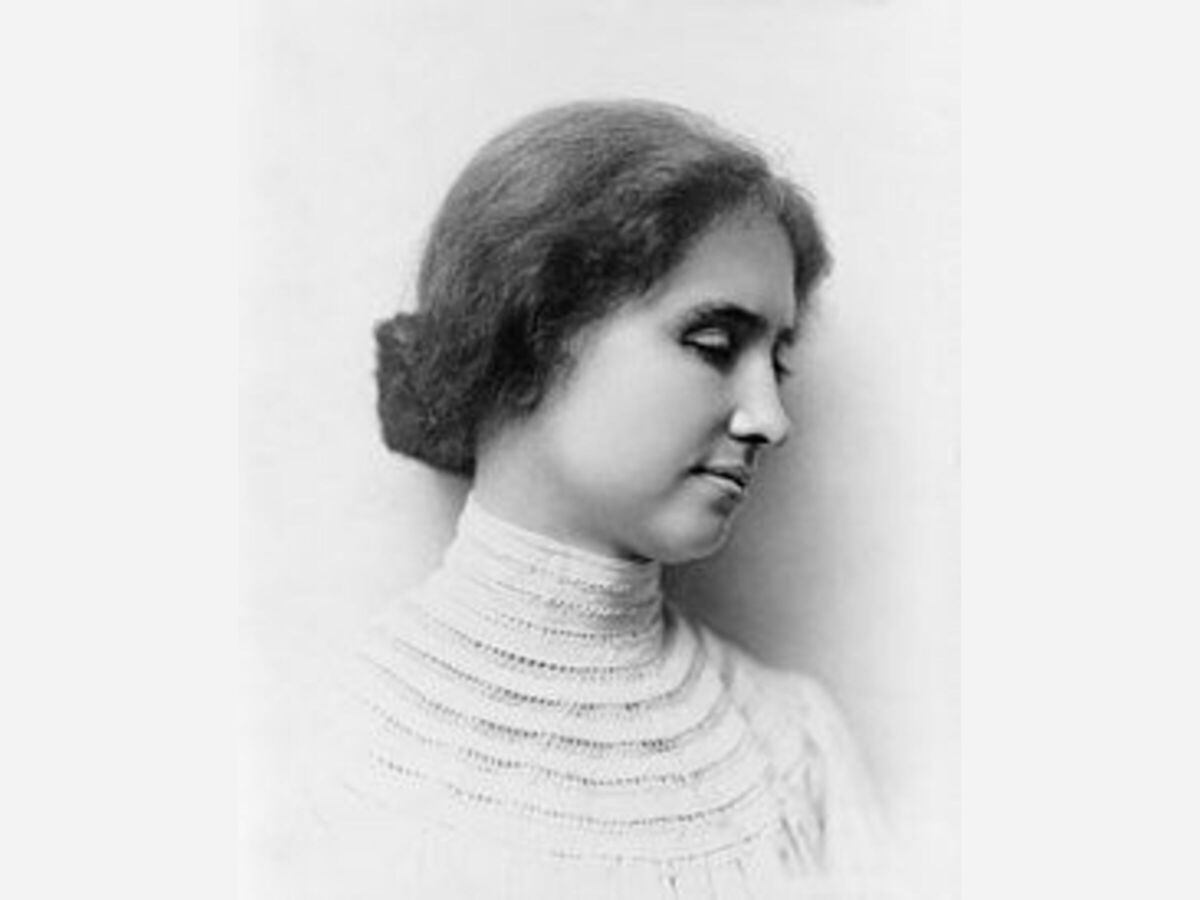Image

Our twin schools, the Keller-Sullivan complex, pair the Helen Keller Elementary School, named after the brilliant deaf and blind woman who was brought, figuratively, out of darkness by her teacher, Annie Sullivan, namesake of the attached middle school. Connecting those two people in our town, an idea suggested by students, is a brilliant gesture memorializing the determined and motivated teacher and the willing and inspired student. The schools are a source of pride to families whose kids attend and to the town as a whole.
But what often goes unremarked is a disturbing side of Keller, so at odds with her reputation as a great humanitarian. And it’s not her commitment to communism, which would be considered unremarkable today. Keller, it turns out, was a devotee of the science of eugenics, which proposed that society would better off minus its ‘defectives.’ To be sure, it wasn’t just Nazis that adopted this view. It had wide currency in much of Western society at the time. But given her own life experience, it certainly seems an odd subject for her support.
In one instance, she wrote, “A mental defective, is almost sure to be a potential criminal.” And in 1915, in a letter in the New Republic, she wrote in defense of a Dr. Haiselden, who put eugenics into practice in his obstetrical work, announcing to shocked parents that their baby shouldn’t live – a famous catchphrase being “sometimes it is kinder to kill.”
“Much of the discussion aroused by Dr. Haiselden when he permitted the Bollinger baby to die centers around a belief in the sacredness of life. If many of those that object to the physician’s course would take the trouble to analyze their idea of ‘life,’ I think they would find that it means just to breathe. Surely they must admit that such an existence is not worthwhile. It is the possibilities of happiness, intelligence and power that give life its sanctity, and they are absent in the case of a poor, misshapen, paralyzed, unthinking creature.”
Of course, Keller later achieved a more nuanced approach to the subject. But other authors have noted that during her time living in Wrentham, not far from the Wrentham State School, it existence was never once mentioned by her in her writings or correspondence, nor did she ever visit, for the school was doing exactly the opposite of what eugenicists preached.
Some modern commentators have noted that Keller was a child of the slavocracy in the South and, on some level, may have been tainted by that early experience.
As for Dr. Haiselden, he went so far as to promote his views in a full-length silent movie called Black Stork, now available for viewing on Youtube, which condemns promiscuity and race mixing as well as the virtues of eliminating those deemed defective.